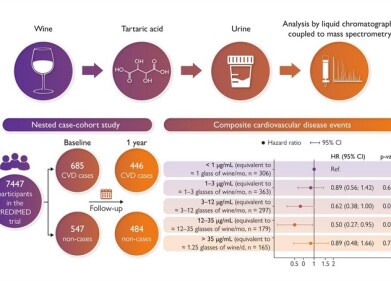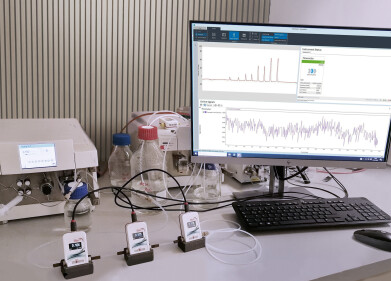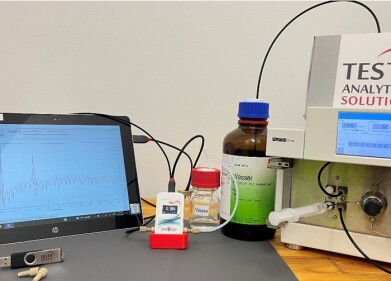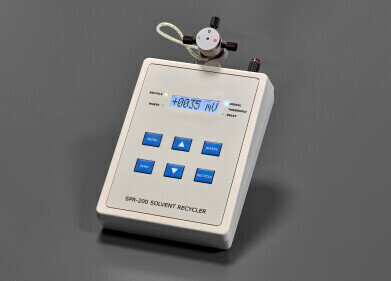Chromatography
Innovative System for Single Molecule and Biopharmaceutical Applications
Mar 09 2011
JPK Instruments is pleased to report on the first work from the University of Nottingham who have chosen the ForceRobot® 300 system for their School of Pharmacy. The Laboratory of Biophysics and Surface Analysis (LBSA) is one of the world’s leading scanning probe microscopy groups, having published several hundred ground-breaking papers over the last twenty years. Dr Stephanie Allen (Associate Professor and Reader in Molecular Biophysics) is an academic based within the LBSA. Her work involves the application and development of a range of advanced biophysical tools such as Atomic Force Microscopy (AFM), the Quartz Crystal Microbalance (QCM-D), the Biomembrane Force Probe (BFP) and Optical Tweezers. Most recently, she has added a new advanced technique from JPK Instruments - the ForceRobot® 300 system, which provides the ability to automate force spectroscopy measurements.
Force spectroscopy measurements are being applied at Nottingham in a number of projects (funded by the BBSRC and Pharmaceutical Industry). In single molecule experiments, the group are studying the effects of bacterial DNA binding/remodelling proteins on the mechanical properties of DNA. Other projects are aimed towards gaining an improved understanding of the molecular basis of diseases, such as those related to the blood protein, von Willebrand Factor (vWF). The ability to record forces between a pair of interacting biomolecules is also being explored as a basis for new screening approaches e.g. for drug-discovery and/or biopharmaceutical formulation development.
While it is possible to perform such studies using conventional AFM instruments that are capable of performing force spectroscopy measurements, the experiments are not trivial to perform/optimise and can be very labour and time intensive; many hundreds/thousands of force measurements are typically required per experiment. The ForceRobot is an automated platform with great flexibility enabling the researcher to plan advanced experiments, with automated procedures allowing the continuous recording of thousands of force measurements and the change of key experimental variables within one experiment, such as measurement surface location, speed of approach and retraction of the probe, and also checks of laser alignment and calibration during the experiment.
Digital Edition
Lab Asia 31.6 Dec 2024
December 2024
Chromatography Articles - Sustainable chromatography: Embracing software for greener methods Mass Spectrometry & Spectroscopy Articles - Solving industry challenges for phosphorus containi...
View all digital editions
Events
Jan 22 2025 Tokyo, Japan
Jan 22 2025 Birmingham, UK
Jan 25 2025 San Diego, CA, USA
Jan 27 2025 Dubai, UAE
Jan 29 2025 Tokyo, Japan



















